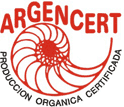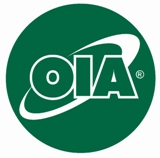Organic Trade Association fly-in shows support for bill to hold USDA accountable
The U.S. organic sector is on a tear; demand for organic food and products has never been greater, and more consumers have access to organic than ever before. Fifty members of the Organic Trade Association representing the entire organic supply chain recently met virtually with some 30 lawmakers to make sure that the organic sector’s remarkable advancement continues.
Reflecting gaining momentum for the bipartisan Continuous Improvement and Accountability in Organic Standards Act (CIAO) introduced in the House earlier this year, the diverse group of organic farmers, businesses and associations from throughout the country visited with lawmakers on both sides of the aisle last Tuesday on the critical need to support the legislation that safeguards and advances organic.
“The federal regulatory apparatus has fallen behind the evolving organic sector, and has slowed innovation and improvement within the industry. This legislation corrects the course forward,” said
Laura Batcha, CEO and Executive Director of the Organic Trade Association. “Our fly-in drove home to lawmakers the fact that the unique private-public partnership of organic and the federal
government has made our organic system the gold standard for food and agricultural systems, and that we need to get that partnership back on track.”
The CIAO bill has been endorsed bymore than 55 organic farmers, businesses, consumers and
environmental organizations, with aco-sponsorlist?that’s grown to 16 since its
introduction. The National Organic Standards Board has also expressed unanimous support for the bill, saying the legislation respects the work of NOSB in clarifying and updating national organic
standards. More than 50 current and former NOSB members have endorsed the bill.
The legislation directly addresses the challenges of organic over the past two decades and provides a clear way to ensure the federal government keeps up with the organic market. It lays out a
road forward for organic through three areas:?it requires USDA to clear the backlog of stalled organic standards put forth by the industry and recommended by the National Organic Standards Board;
it establishes a new framework for advancing future organic standards; and it ensures consistent application of new standards from organic certifiers.
Participants in last week’s virtual fly-in came from all points of the organic supply chain and mirrored the diversity of organic--organic grain farmers and dairy and poultry producers, organic
processors and consumer brands, organic flavor makers and fertilizer producers, organic certifiers and organic fiber stakeholders.
















